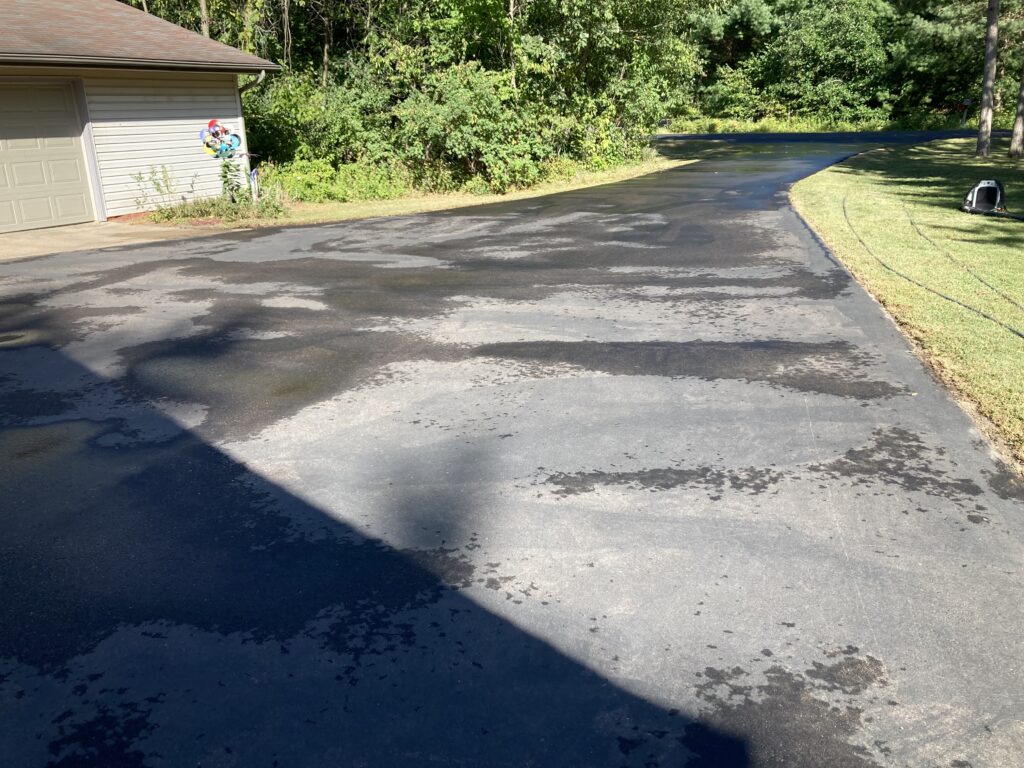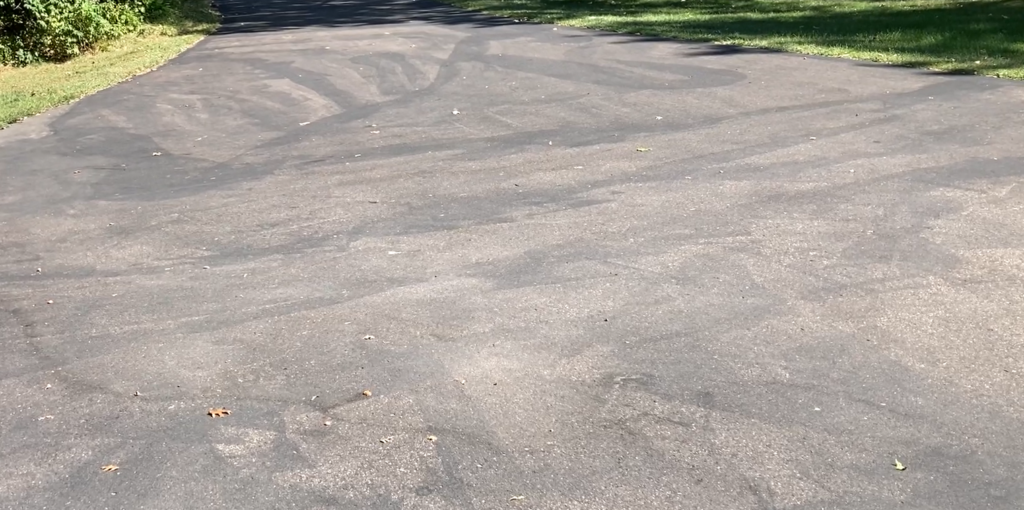One of my goals with these articles is to make them straight forward and easy to understand. This allows people with different backgrounds and experience levels to benefit from them.
Once you make the investment for a new asphalt driveway it is important to know when you should start applying a quality asphalt sealer.
When should you start sealing your driveway?
There are a variety of asphalt mixes contractors can use to pave driveways. Some asphalt mixes for driveways can initially be more tender and may take some time to fully set up. A couple of reasons for this is the contractor may choose to use more sand and less crushed stone, use a lower grade asphalt cement, and use compaction additives in the mix. This typically is fine for driveway mixes because it can help keep the costs down, make the mix easier to compact at lower temperatures, and most driveways will see minimal heavy vehicles. As the pavement is exposed to the elements (e.g. wind, sun, rain), the pavement starts to age. This helps to stiffen the asphalt driveway. For these reasons, you may get different opinions on when you should start sealing your asphalt driveway. This is because each asphalt pavement may be ready to be sealed at different times and there are multiple factors to consider.
To simplify things, I would recommend people start applying asphalt sealers 6 months to 2 years after the driveway is paved. You should seal it before or soon after it starts to fade and turn a light black or gray color. If the pavement is fading, the asphalt is probably starting to age and sealing the pavement will slow this process down.
When should you reseal your driveway?
The short answer is it depends on how the asphalt sealer is performing. A quality sealer may last 3 or 4 years where a lower quality sealer may last 1 to 2 years. If the sealer appears to be wearing off the surface of the pavement (refer to the picture at the top of this article), then it is probably time to reseal the pavement. One way to tell if the sealer is wearing off is if certain parts of the driveway are taking longer to dry than other sections after a rain event (see the picture below). Remember sealers prevent water from penetrating the asphalt. If sections are taking longer to dry it might be because there is less sealer in those areas and water is penetrating farther into the asphalt. I would recommend trying to be on the conservative side and reseal sooner rather than later.

Does it still pay to seal older driveways?
I would still recommend sealing your driveway, even if the driveway is older and hasn’t been sealed in the past. As asphalt ages it tends to become more brittle which can make it easier for water to penetrate. This can cause the asphalt to deteriorate faster. Applying sealer, will still reduce the amount of water that enters the pavement and should slow down the deterioration. One exception to this is if the asphalt driveway has a lot of cracks (e.g. alligator cracking), potholes, and other distresses. In this case, the pavement may be too far gone for just applying a sealer. You may need to apply some other products (e.g. alligator crack repair) first before applying the sealer. These products consist of thicker emulsions (e.g. has more asphalt cement) and are made for covering deteriorated areas. Keep in mind, this will probably not be a long-term fix, but you will buy time. If you do the work yourself, this may still be cheaper than repaving your entire driveway.
